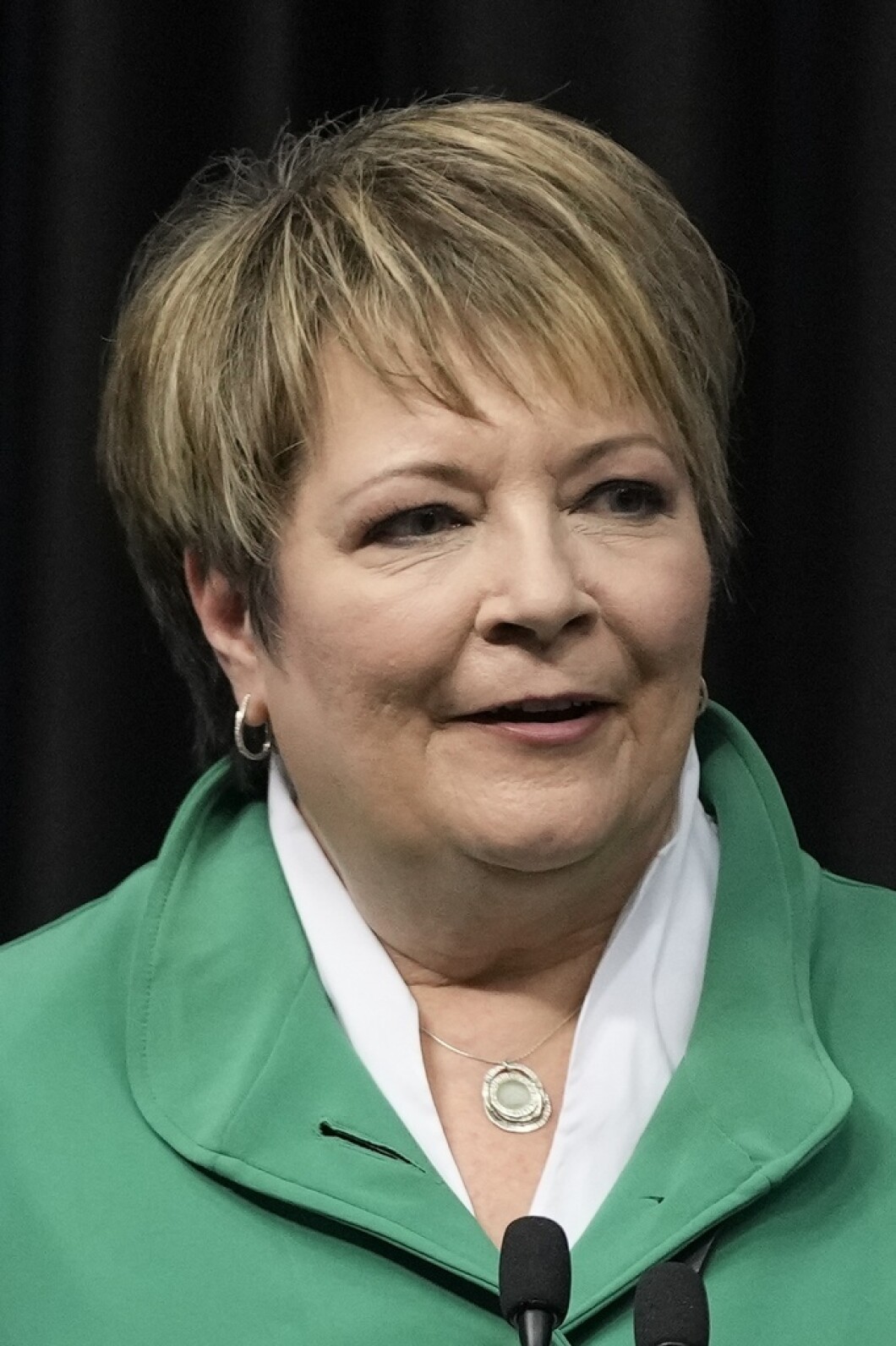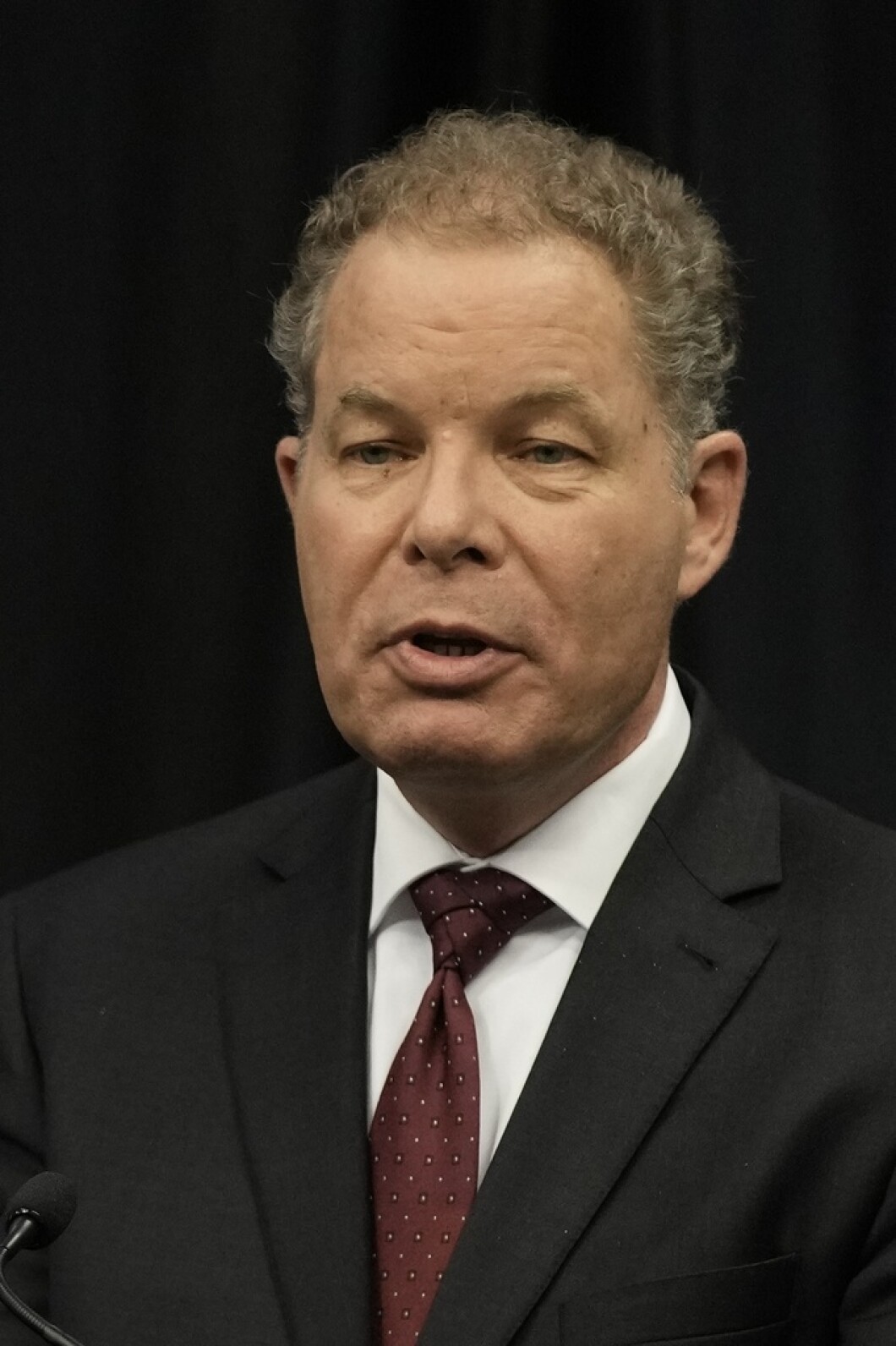
Liberal Milwaukee Judge Janet Protasiewicz defeated former Justice Daniel Kelly on Tuesday night in a record-shattering election for a coveted seat on Wisconsin’s Supreme Court. Her win wrangles control from conservatives who have been in power for 15 years and makes her the deciding vote on abortion rights, political maps, and perhaps even the 2024 presidential race.
Both candidates advanced out of a four-person primary in February for retiring Justice Patience Roggensack’s seat.
WHAT’S AT STAKE IN WISCONSIN’S EXPENSIVE RACE FOR CONTROL OF STATE SUPREME COURT
Protasiewicz took the early lead and, with 71% of the votes in, had received 56.1% of the vote compared to Kelly’s 43.8%, according to the Associated Press.
Conservatives currently have a 4-3 majority on the state Supreme Court.
Tuesday’s race was easily the most expensive state judicial contest in U.S. history, with an estimated $45 million being pumped into it from special interest groups as well as billionaire megadonors, including liberal George Soros and Richard and Elizabeth Uihlein, who have two of the deepest pockets in conservative politics.
Officials on both sides described the stakes of the nominally nonpartisan race in stark terms.
Democrats framed the showdown as their last shot at stopping Republicans from keeping their grip on the battleground state.
“If Republicans keep their hammerlock on the state Supreme Court majority, Wisconsin remains stuck in an undemocratic doom loop,” Ben Wikler, chairman of the Democratic Party of Wisconsin, said ahead of the election.
Former U.S. Attorney General Eric Holder, who stumped for Protasiewicz over the weekend, agreed.
“I will tell you this,” he said during a get-out-the-vote stop in Waukesha. “This is the most important election in this country in 2023.”
The voters seemed to agree.
Dane County Clerk Scott McDonell said that despite the rainy weather expected in his county, turnout, coupled with early voting, may also break a state record.
“We’re going to have record turnout for a spring nonpresidential election,” he told reporters.
Barry Burden, a political science professor at the University of Wisconsin-Madison, told the Washington Examiner that the “stakes are huge.”
The race itself focused mostly on crime, gerrymandering, and abortion.
Democrats saw a win as the only way to reverse the state’s 19th-century abortion ban. Protasiewicz has been open about her support of abortion rights, inviting critics to slam her for all but abandoning impartiality in her campaign. She’s also called the state’s election maps “rigged” and has run much of her race as a partisan congressional one, including receiving nearly $9 million from the state Democratic Party, which also organized canvassing efforts on her behalf.
“Everything we care about is on the line,” she said after voting Tuesday. “From our democracy to start with, our gerrymandered maps, women’s ability to make their own healthcare decisions, everything we care about is on the line.”

Kelly repeatedly questioned whether Protasiewicz can remain partial on the hot-button topics. However, he has also been clear on his views on the state’s future. He’s also raised some eyebrows over controversial blog posts on same-sex marriage. He also argued government programs like Medicare and Social Security were an attempt to steal from taxpayers and akin to slavery. Kelly and his allies also hit Protasiewicz hard for being soft on crime.
In addition, he has claimed abortion access promoted “sexual libertinism” and locked up support from Wisconsin’s three largest anti-abortion groups, though he did not say how he would rule on the subject.
Wisconsin’s race was seen as a bellwether. Twenty-one states directly elect justices to their highest court, while another 17 have them stand for retention elections after they are appointed. More than two dozen states held their elections for their top courts last year after the Dobbs v. Jackson Women’s Health Organization ruling issued by the U.S. Supreme Court overturned access to abortion. In those races, the results were mixed. Wisconsin’s contest was different because it was the first time the issue was at the top of the ballot, meaning it was not being overshadowed by other state or national races.

CLICK HERE TO READ MORE FROM THE WASHINGTON EXAMINER
How Tuesday shook out will likely unlock clues about the national temperature on abortion and may change how political parties approach the topic in their campaigns, including the 2024 presidential race.
Wisconsin has played a pivotal role in four of the past six presidential elections, where the victor has been decided by less than a percentage point. In 2020, former President Donald Trump, who pleaded not guilty on Tuesday to 34 criminal counts of falsifying business records and conspiracy, unsuccessfully turned to the Wisconsin Supreme Court to overturn his 21,000-vote loss.





